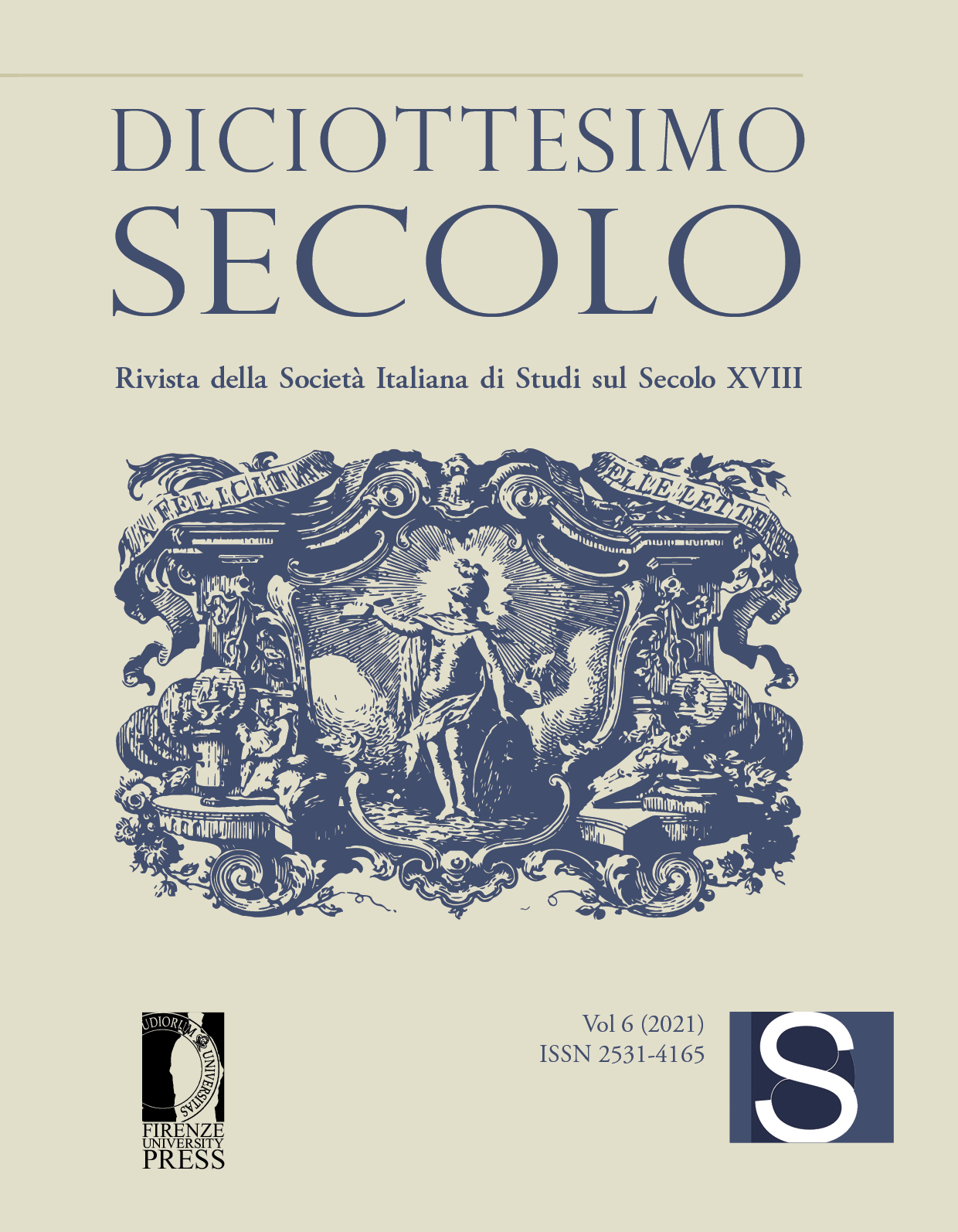‘I primi passi’ di un giovane ‘verso la patria e verso il popolo’. Pratica educativa eclettica, religione popolare e religiosità civile nel pensiero di Bernardo Tanucci (1741)
Published 2021-11-09
Keywords
- Education pedagogy,
- religion,
- J-J. Rousseau,
- Neapolitan enlightenment
How to Cite
Abstract
In December 1741, the statesman Bernardo Tanucci wrote to prince Bartolomeo Corsini a long, very interesting letter regarding authors and readings, travel, principles and good practices of eros and agape, on which to base the training of a young Florentine knight. Tanucci’s authentic, essential and eclectic position on the matter of education strongly emerges from these pages. The educational proposal is based on three axes: a general culture plan, emphasizing historical studies and political science, whose authors are all non-conformist thinkers, or rather, considered to be the expression of the utmost criticism; a mischievous vademecum for education at the University of Pisa, where Tanucci had taught law; the right way to integrate theoretical knowledge and direct knowledge, which was to be implemented through a series of expedients, such as the experience of travelling in Europe, attending courts and exponents of the ruling classes, direct knowledge of the major intellectuals of the time, conviviality in the drawing room and, last but not least, relations with the opposite sex. With the latter point Tanucci addressed the central problem of the limits of education, namely those posed by the paradox of the « already educated educator ». Again, the relationship between Tanucci and the German intellectual world clearly emerges. This attraction derived from the great theme of eclecticism. Firstly, this method appeared to Tanucci as a useful and convenient canon for interpreting the four-way relationship between ‘civil’ and ‘ecclesiastical’ history, between philosophy and theology. Moreover, Tanucci admired the eclectic method of comparing confessional divisions, which seemed to lead to the hypothesis of the necessity of a natural and worldly religion. Eclecticism was understood by Tanucci and Genovesi – and, before them, by their common master and friend Celestino Galiani (albeit with different outcomes, tending towards radical scepticism on this last aspect) – as the sign of a sincere and creative variety of scientific results.


